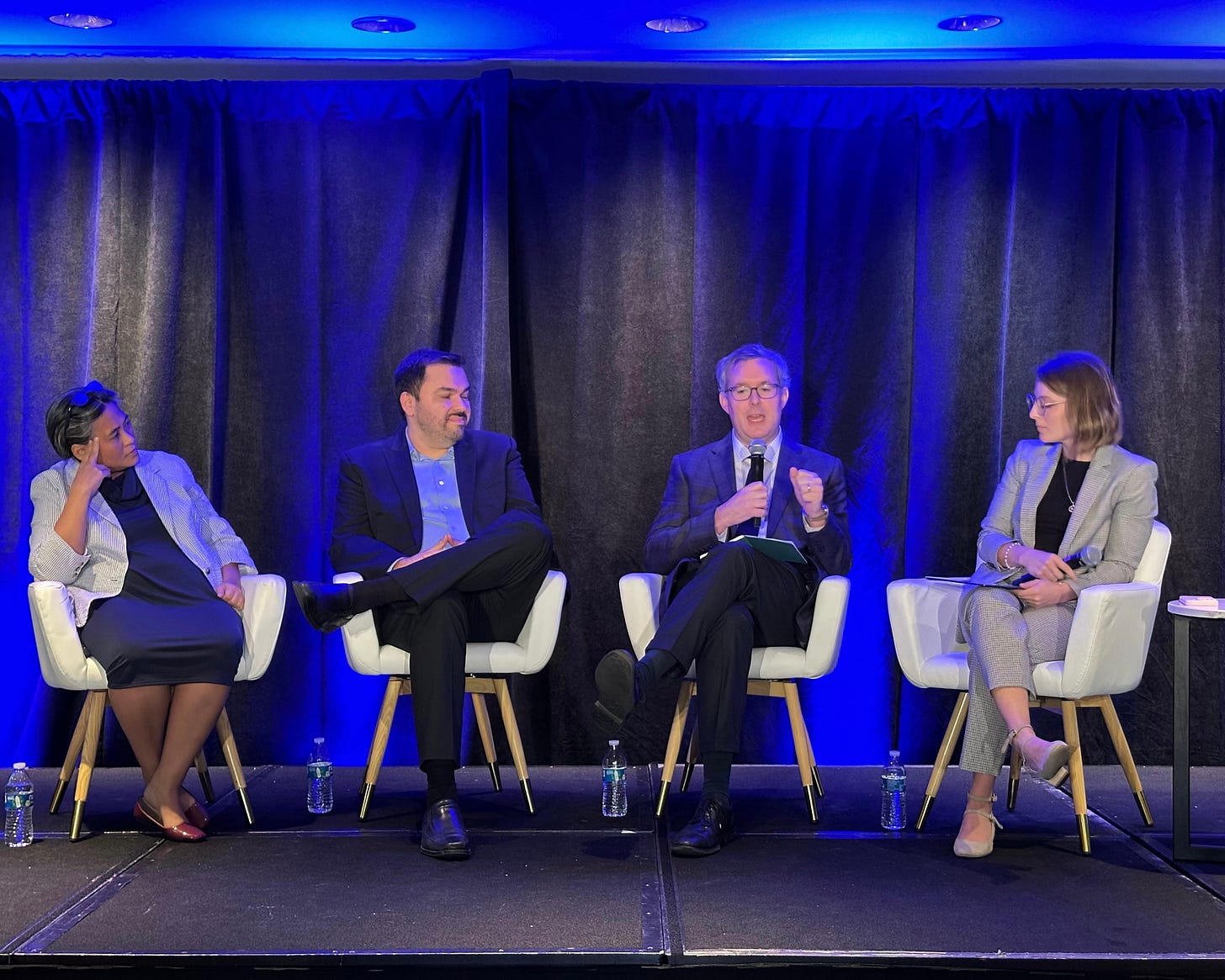A Shared Mission
Markets, liberty, and limited government are a global imperative
Working from Lord North Street, it’s easy to get caught up in the Westminster bubble. However, this week, a group of us from the IEA stepped outside SW1 and had the privilege of joining hundreds of global advocates for liberty at Atlas Network’s Liberty Forum and Freedom Dinner. This is a gathering of hundreds of think tank leaders, philanthropists, and freedom advocates from around the world.
After founding the IEA in 1955, Antony Fisher went on to found Atlas Network, then called Atlas Economic Research Foundation, to replicate the IEA model across the world. Now, Atlas Network partners with more than 500 partners in more than 100 countries around the globe, all seeking to create a society in which people are free to flourish.
Atlas Network provide training for think tankers across the world, allowing for skills to be learnt and knowledge to be shared. Our very own Operations and Talent Manager Samuel Cruickshank attended the ‘Leader Lab’ training course this year. He was a finalist in the pitch competition, where he pitched for a network of pro liberty student groups across the UK. Well done Sam!
In addition to this success, the IEA’s Director of International Outreach Adam Bartha was a finalist in the Smart Bets competition with EPICENTER’s “Boosting Brussels” Initiative. You can learn more about the “Boosting Brussels” Initiative here. Well done Adam!
IEA Executive Director Tom Clougherty spoke in a session entitled “Unlocking Employment: Pathways to Economic Freedom”.
Additionally, this week was a chance to showcase some of the work that pro-liberty organisations are doing to liberalise their countries. Promoting the intellectual basis for limited government and freer enterprise looks very different across the globe, depending on the domestic governmental structures and media landscapes. In some cases, advocates of freer markets and individual liberty risk their lives to promote these ideas. In learning about some of these projects, I was really struck by their unwavering commitment to advocating for liberty, no matter the risks. These patriots care deeply about the future of their countries, and work tirelessly to fight for it.
In Burundi, women have not been afforded property rights for generations. A 38-year-old indigenous farmer named Ms. Ndayizigiyimana was left landless when her husband passed away. CDE Great Lakes, also an IATP partner, aims to secure women’s property and inheritance rights through their “Why Women” project. They have been working to promote women’s property rights in Burundi, and because of their work, the number of women holding land certificates increased from 3,000 in 2015 to 21,000 today.
In Lebanon, the Central Bank’s Subsidy Program caused severe shortages of essential goods and skyrocketing inflation. The Lebanese Institute for Market Studies launched their “Subsidy Free Lebanon” campaign to expose the programme’s devastating economic consequences. Through media campaigns and policy advocacy, they succeeded in lifting price controls on essential goods, stabilising the currency and restoring market functionality. Kristelle Mardini, Director of the Lebanese Institute for Market Studies (LIMS), said:
“As war intensifies, some call for a return to government intervention… [but] we stand ready to defend freedom, because when markets are free, people prosper.”
This week has reminded me that we are certainly not alone in the fight for low tax, limited government interference, and individual liberty. It is a shared mission that unites us across continents, driven by the belief that a freer world is a more prosperous world for us all.
Reem Ibrahim
IEA Communications Manager
P.S. The best way to never miss out on IEA content and support our research and educational programmes is to become a paid IEA Insider. For a limited time, new paid subscribers will receive a copy of Steve Davies’ book Apocalypse Next: The Economics of Global Catastrophic Risks and a 15% discount.
Jump in inflation should not delay further rate cuts, says Julian Jessop
Commenting on the rise in inflation to 2.3% in October, IEA Economics Fellow Julian Jessop said:
“UK inflation rebounded a little more than expected in October, to 2.3%, as a tick up in the ‘core’ measure added to the upward pressure from higher energy bills.
“However, the increase in the ‘core’ measure was largely due to higher airfares – an erratic component which the Monetary Policy Committee should look through.
“The Bank of England was also already expecting headline inflation to average 2.4% in the fourth quarter of this year when the MPC cut rates earlier this month.
“Nonetheless, today’s news will add to nervousness about the outlook for inflation in the first half of next year, when the main impact of the increases in taxes and other business costs in the Budget will kick in.
“The Bank expects the Budget measures to lift inflation above 2.5%, taking it further away from the MPC’s 2% target. But this increase should only be temporary and may not materialise at all, particularly if the main impact of the Budget is actually to undermine confidence and growth.
“In any event, the current official interest rate of 4.75% is still higher than it needs to be to continue bearing down on inflation, especially when the full effects of past monetary tightening have yet to feed through.
“If anything, the Bank of England should step up the pace of easing. But at the very least the MPC should stick to the current path of ‘gradual’ rate cuts.”
The TRUTH About Capitalism That No One Talks About, IEA Communications Manager Reem Ibrahim, CEO of Liberty Ventures Alexander McCobin, IEA YouTube
Can Elon Musk Fix America's Trillion Dollar Problem?, IEA Executive Director Tom Clougherty, IEA Editorial Director Kristian Niemietz, IEA Communications Manager Reem Ibrahim, IEA YouTube







